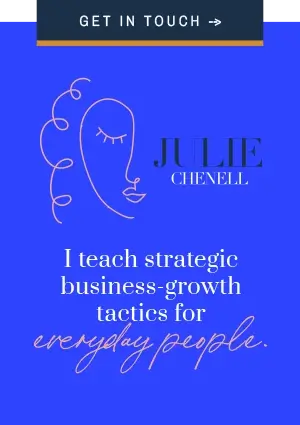Subscribe On:
Full Transcript:
A couple of podcast episodes back I started talking to you guys about fear. And I’m working on a presentation for a conference I’m going to and I got a lot of response from you all saying, “Yes, we’d love to hear more about what you’re preparing for that.” So I thought I would dive a little bit into this first concept I sort of coined, Leveraging Logic When Emotions Can’t Be Controlled.
So I want to tell you a little bit of story, and this could be related to business so much it’s crazy. In fact, I’ll use kind of a business example, because I think typically the things we fear in life usually related to relationships, that we won’t be loved, that we won’t be wanted. And then in business that we won’t be able to make the money that we want to make and have the impact we want to have.
Alright, leveraging logic when emotions can’t be controlled. I had a very strong fear as a child, and then as an adult about getting terribly sick. As a kid it was about me getting sick, and then when I became an adult, I sort of got over that fear, I wasn’t as afraid of that. But I found myself sort of transferring that fear onto my kids, and I was terrified of my kids getting some terrible illness, or disease. And I think that’s a pretty common fear. I don’t think I am unusual.
So you know, I sort of lived with this fear, and it kind of hung out in the background when the kids would get a fever or get sick, you’d kind of see it pop up in my and it was annoying and all that stuff. But this single greatest fear actually showed up on my doorstep when my third child was born. I don’t know how many of you have heard the story, but I had two babies that were healthy, I was 22 and 24 when I had them, and nobody expected that I would have a baby who was born sick, because I’d had two healthy pregnancies and I was only 26 years old.
So when Eden was born, I remember being in the labor and delivery room and holding her and trying to nurse her and she was very agitated and wasn’t nursing. And the nurse took her and said, “Don’t worry about it, I’m going to go ahead and give her a bath and bring her back to you in a few minutes.” And more than a few minutes went by, I had no idea that anything was wrong. I sent my husband home, “Just go home and be with the kids. I’ll see you later.” And as the minutes ticked by I started to worry. Why wasn’t she back from her bath?
And a nurse came in about an hour later and said, “You know, when we were giving Eden a bath she was really struggling to breathe, so we need to continue to watch her. We’ve actually moved her down to the neonatal intensive care unit because she was really struggling to breathe.” And I panicked and “What was it? What’s going on?” and they said, “Well, we think maybe she swallowed some meconium in the delivery and she might have some pneumonia.” So I was like, ‘Okay.”
And another hour went by, by the way, I had been texting my mom and my husband at the time, but they were all at church and had their phones off. So I had nobody to sort of work this fear out. And another hour went by and they came back and said, “Well, she’s now on life support and we have no idea what’s wrong. And it’s not pneumonia, and we don’t know.” And the amount of fear I felt just having given birth a couple hour earlier, having no idea, that was the state I was in when about two hours later, a pediatric cardiologist walked into the room and said, “Hi, my name is Dr. Alan Friedman, I’m the pediatric cardiologist, and your daughter has transposition of the great arteries.”
And my worst fear just literally landed on my lap. So I call this leveraging logic when emotions can’t be controlled because when you are afraid of something, we forget that we have a brain, because our emotions are working so hard that we just totally forget that we have a brain. I had to be reminded that God gave us a brain and a heart, and I found myself having these really complicated fears around Eden, about my ability to care for her, would she be okay, would she be in pain, what about the other kids, what if I have to take her home without the monitors and no nurses? You know, fear just pounding you. And you may feel fears like this yourself, right. You may feel like, “Oh my gosh, I’m worried I’m fat, I’m worried that my house might catch on fire. I’m worried that my business won’t do well.” You’ve just got fears sort of plaguing you, and if you don’t stop and separate them out into internal and external fears, it just becomes, it just adds to the emotional sort of noise.
So a lot of times it’s hard to tell, what’s an internal and external fear? So for example, I’m worried that I’m fat, or I’m afraid that I’m fat. That’s like an internal fear, you’re worried about something about yourself. Then there’s external fears like, I’m worried that a bomb might go off or my house might catch on fire, whatever. Then there are the complex one’s, things like I’m worried that my business won’t make the money it needs in order to send my kids to college. That’s a complicated worry or fear. You’re going to need to deconstruct it. It’s multilayered and it really could mean any of the following. I’m worried my business won’t make money. I’m afraid my kids won’t get the chance to go to school. I’m afraid I’ll feel pain if they miss out on this opportunity for college. I fear I’m a bad mom because I can’t pay for their school. I fear that my kids will live at home forever because they can’t get a good job.
So you start to deconstruct what that fear is about. And I knew for me, in that hospital I feared that Eden would die. I feared that she would stuck with a half fixed heart. I feared about my other kids. I feared that I wouldn’t be able to care for her. And I feared bringing her home. So I separated these out into external and internal fears, very simply. External fears, Eden will die, Eden will be in pain, my other kids will be neglected. That’s really what it boiled down to. And then the internal was I’m incapable of caring for a sick child. I’m going to be unsupported as a mother to a sick child. And I will be in pain because my child is in pain.
So once you’ve been able to sort of deconstruct what are the external and internal fears you’re feeling around your business, around yourself, your life, your relationships, whatever, then you have to sit down and say, “Alright, what is the actual percentage chance that this is real, or that this is going to happen.” And I remember doing this with Eden. And I was like, “Well, the doctor says her chance of death is only about 5%. They know how to fix this particular heart problem. It’s risky, but they can fix it.” And my other external fear about my children being neglected, once I actually sat down with that I was like, “Is that actually logical.” And the answer is no, because I had a husband, I had parents, babysitters and church friends. So that was really zero. And then the only one left was Eden will be in pain. And that was about 90-100% likely. So that was really the only thing that I had to face head on.
So what happens when you assign percentages to your external and internal fears is that instead of having 75, you basically look at the ones that have a 50% chance or more likelihood of happening. And when I went through this exercise, I realized at the end of the day, the only two things I was actually worried about that might actually happen or were happening, were that Eden was in pain, and I was in pain because my child was in pain. That was my fear. I was fearing pain.
And it became way easier to deal with the fear of pain and to work through that, than to work through 8000 other little, tiny worries. And the same things goes in business, like if I think about the percentage of likelihood that these things would happen, like my business won’t make enough money, or my kids won’t get to go to college, or my kids will live home forever. And I started to kind of look at all of them, there was really only one thing that had a high likelihood of happening, and it was all related to my own self worth. Now I was able to look at that and actually deal with that fear head on.
So my whole point about leveraging logic when emotions can’t be controlled is really the process of saying, okay, free write, what are you actually afraid of? Separate it out into external and internal fears. Deconstruct them so you can really look at what’s going on. And then assign percentages to every single one of those, and anything that’s 50% or less, or 20% or less, or whatever, knock them off the list, they’re not even worth worrying about. And anything that’s 50% or higher, look at it, and realize that you’ve probably knocked 90% of what you’re afraid of right off your list. And then you’ve got one or two things, and now it’s way easier to cope with those one or two things.
So this is what I did with Eden. And I realized that the one thing that I feared was pain, and not only was I fearing it, but I was in pain because I was fearing pain. I was complicating it, instead of just letting the pain of the situation go through me I was adding more pain to the pile by anticipating the pain. I was like, this is ridiculous. This is very illogical.
So I was able to move through that situation by recognizing that pain doesn’t last forever. That pain can be handled with medication, with support, with prayer, with all these different things. And the anticipation for what was happening, was as bad as the actual thing itself. And once I figured that out, I was able to move through that situation with a lot more grace and support, than if I hadn’t done that exercise.
So my charge to you is whatever you’re afraid of in your business, in your life, in your relationships right now, to do that exercise where you separate it all out, and you assign percentages, and you really whittle it down until you get to the crux of the issue, because once you have the crux, then you can solve it a lot more easily. I hope you guys are having an amazing day and I’ll talk to you soon.









0 Comments